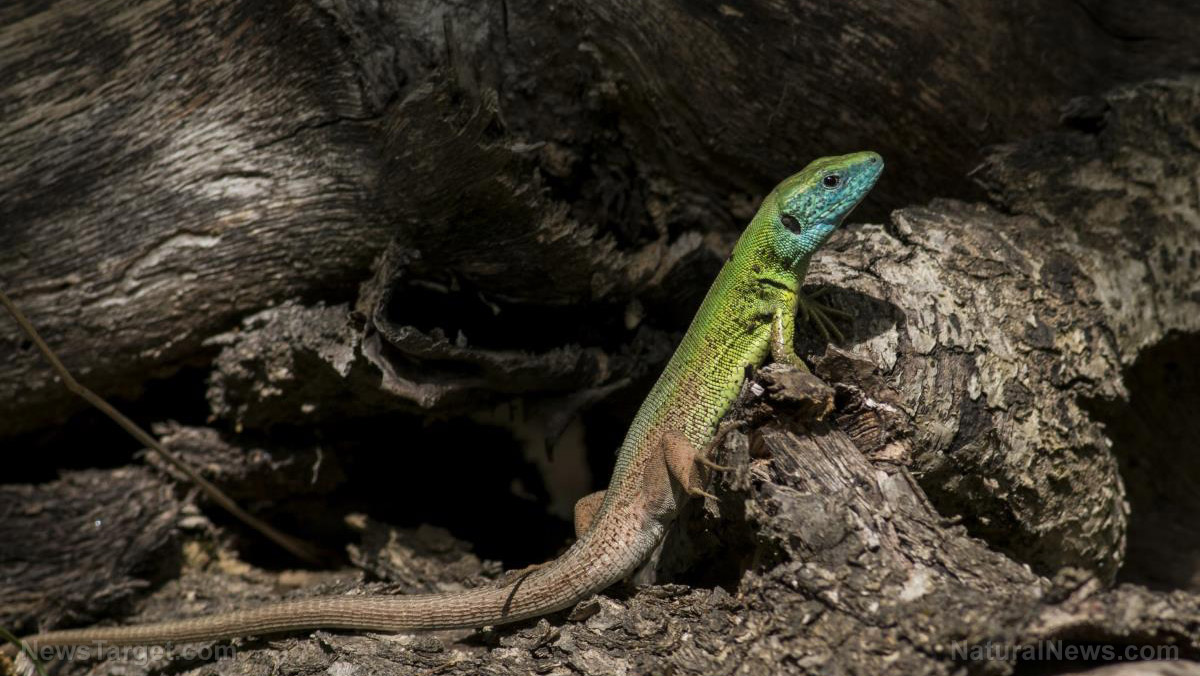Having constantly stressed ancestors may improve your own immune response to stressors, suggest research
06/10/2019 / By Edsel Cook

A new study showed that the descendants of lizards who lived in high-stress environments developed stronger immune systems than those descended from lizards who lived in low-stress environments. Based on this discovery, researchers should consider looking at family history in future studies investigating stress and its effects on health.
Long periods of stress can compromise the immune system of an organism, rendering it more vulnerable to illness. Pennsylvania State University researchers confirmed this in an experiment involving lizards whose ancestors lived in low-stress environments. However, they observed the opposite in lizards whose ancestors experienced prolonged periods of stress.
“But for lizards whose ancestors lived in high-stress environments, those animals had more robust immune systems when they were exposed to stress,” explained Tracy Langkilde, one of the authors of the study and a professor at Penn State. “So the immune response to stress actually is dependent upon the environment experienced by previous generations.”
Langkilde and her team used fence lizards (Sceloporus undulatus) for their study. She believes that their findings might also apply to other animals, including humans, even though various animals encounter different kinds of stressors. (Related: Sharing the burden: Research shows that support from our partners reduces stress.)
Descendants of highly-stressed lizards have stronger immune systems
Attacks by fire ants (Solenopsis invicta) account for most of the stress experienced by fence lizards. The highly aggressive insects can injure or even kill these lizards.
100% organic essential oil sets now available for your home and personal care, including Rosemary, Oregano, Eucalyptus, Tea Tree, Clary Sage and more, all 100% organic and laboratory tested for safety. A multitude of uses, from stress reduction to topical first aid. See the complete listing here, and help support this news site.
The harmful effects of fire ant attacks are not just limited to causing stress that weakens the immune function of their victims. The wounds they leave on the skin of lizards can lead to infections – and stress leaves the door wide open for illnesses.
However, lizards with ancestors that lived in areas invaded by fire ants showed a stronger immune response to stress. Langkilde and her colleagues theorized that the adaptation improved the lizards’ ability to survive in a stressful environment.
For their experiment, the Penn State researchers caught pregnant female lizards. Some of them originated from locations invaded by fire ants six or seven decades ago — a length of time equivalent to 30 to 40 lizard generations. Others came from areas that fire ants have not yet invaded.
The researchers raised the lizard hatchlings in either a low-stress environment or a high-stress one. They exposed the lizards to attacks from fire ants or dosed them each week with oil containing corticosterone, a hormone associated with stress. When the lizards reached maturity at the age of one, the researchers assessed their immune function.
Stress compromises long-term survival by redirecting energy to short-term survival
The researchers quantified the lizards’ immune function by assessing antigen-induced hemagglutination or clumping of red blood cells and their ability to kill bacteria in the plasma.
“We found that offspring of lizards from high-stress environments had suppressed immune function while offspring of lizards from low-stress environments had enhanced immune function when they were exposed to stress relevant hormones during their own lifetime,” explained Gail McCormick, the first author of the study. “This change is likely adaptive, as an enhanced immune response in the face of stress should also enhance survival in the presence of frequent attack by fire ants.”
Langkilde remarked that animals react to stressful situations by redirecting energy intended for not-so-immediate critical functions to critical functions. This means that what is usually expended for growth, immune function, or reproduction is instead spent on other activities, like escaping a predator.
“This is beneficial in the short term, but can be costly if stress is prolonged. If lizards from sites invaded by fire ants are not suffering from a compromised immune system, what are they trading off? Do they suffer lower growth or suppressed reproduction, instead, when exposed to high-stress environments? These are some of the questions we plan to investigate,” said Langkilde.
Sources include:
Tagged Under: adaptation, ancestors, discovery, energy allocation, genetics, high-stress environment, immune function, immune responses, immune system, immunity, infections, invasive species, low-stress environments, research, stress, stress relief, stressful environment, stressors, survival
RECENT NEWS & ARTICLES
COPYRIGHT © 2017 · SURVIVAL NEWS



















